Test sieve is commonly used for particle size distribution detection of powder and granular materials, and is a commonly used screening tool in laboratories. It is usually made of stainless steel or brass. Stainless steel (such as 304 and 316) has good corrosion resistance and strength, suitable for high-demand experimental environments, while brass is often used for screening materials that are sensitive to static electricity or require conductivity. Test sieve price The basic stainless steel test sieve unit price is about USD 20-40, 300mm model 45 µm 1 piece USD 83, 71 µm 1 piece USD53.
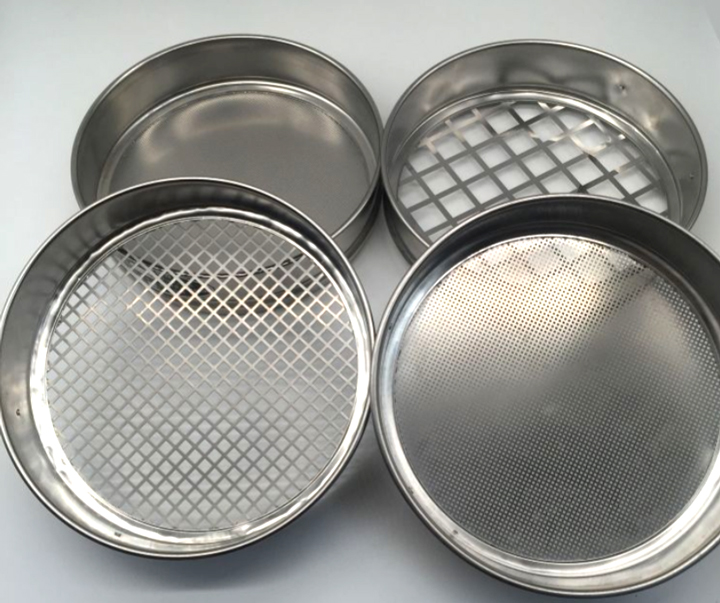
Test sieve common apertures range from 20 microns (0.02 mm) to 125 mm, covering screening needs from ultrafine powder to coarse particles. Test sieves can be used with a variety of equipment, including standard vibrating sieving machines, rotary sieving machines, ultrasonic sieving machines, and manual sieve shakers.

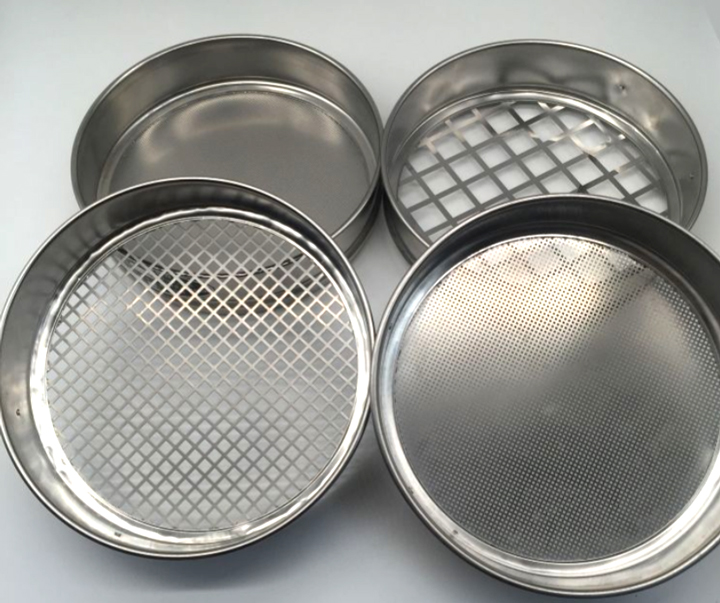
Test sieve has many significant advantages, such as high screening accuracy, strong durability, multi-functional matching, and easy cleaning. It complies with ASTM E11 and ISO 3310 international standards, and the sieve holes are evenly distributed to ensure accurate and reliable screening results. With modular design, users can quickly replace sieves of different specifications (20 mesh-500 mesh), greatly improving work efficiency. The main body of the equipment is manufactured through high-strength welding technology, the sieve tension is tight, and it will not deform after long-term use. High-quality stainless steel (304/316) material gives excellent corrosion resistance and wear resistance, extending service life.
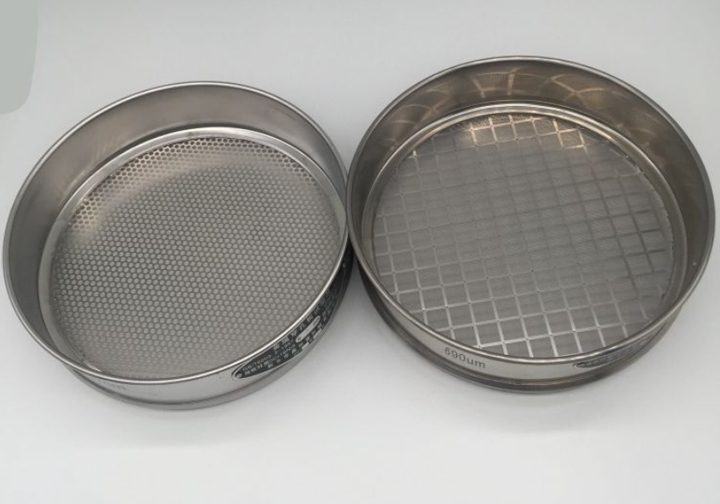
Classification by material: stainless steel test sieve (suitable for most general working conditions), brass test sieve (suitable for static sensitive materials), nickel alloy sieve (more corrosion resistant, expensive);
Classification by sieve frame diameter: small diameter (75 mm, 100 mm) is suitable for fine samples, standard diameter (200 mm, 300 mm) is the mainstream specification of conventional laboratories, and large diameter (450 mm) is suitable for large-scale sample analysis;
Classification by usage: dry sieving sieve, wet sieving sieve (with sealing ring), ultrasonic sieve (suitable for fine powder);
Classification by use: standard test sieve (conventional particle size analysis), fixed abrasive sieve (diamond industry), coated abrasive sieve (sandpaper production), pharmacopoeia sieve (pharmaceutical grade).
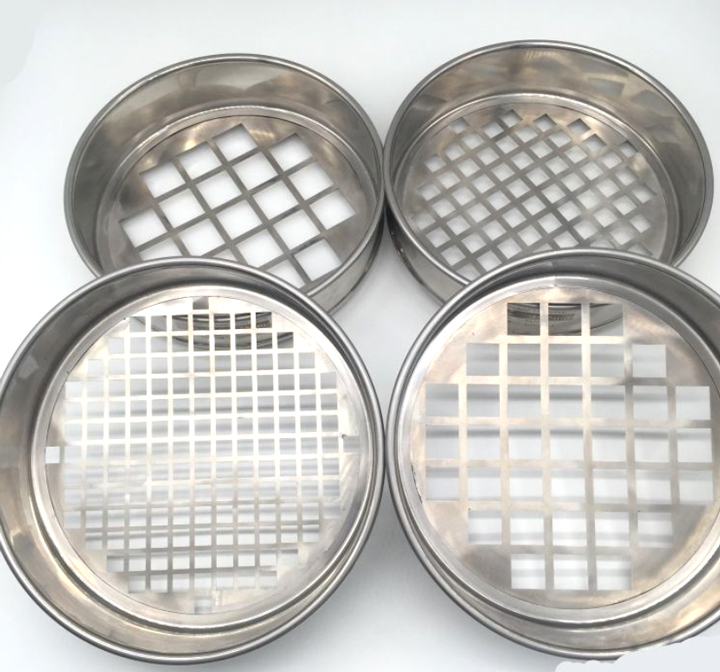
Test sieve price is mainly determined by factors such as material, diameter, aperture accuracy and whether it is customized.
Ordinary brass sieves cost about $30 to $60 and are suitable for general particle sample analysis. Common frame diameters are 200mm and 300mm, and the larger the diameter, the higher the price.
Test sieves made of 304 stainless steel are slightly more expensive due to their excellent corrosion resistance, usually between $50 and $100, of which 200mm diameter is generally $30 to $70, and 300mm and above are about $80 to $100.
316 stainless steel is used in chemically corrosive environments or high-demand industries, and its price is usually between $70 and $150. The price of 200mm diameter is mostly between $70 and $110, while the price of 300mm diameter may reach $120 to $150.
Special metal materials such as nickel alloy or titanium mesh can cost as much as $120 to $300 or more. Small sizes such as 200mm sieves are about $120 to $200, and large sizes such as 300mm and above may exceed $300.
Ultrasonic test sieves, precision sieves, or customized sieve structures (such as micron-level, complex structures) are more expensive, usually $200 to $500 or even higher, and are mostly used for large diameter sieves (300mm or 400mm) and occasions with extremely high screening accuracy requirements.
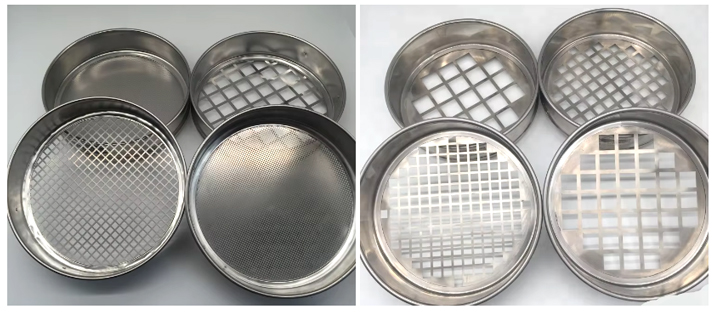
Test sieve structure consists of four parts: mesh, seamless sieve frame, sieve and sieve frame, stainless steel sieve frame
The mesh is the key component for sieving granular materials. Meshes with different apertures can separate materials of different particle sizes; the seamless sieve frame design reduces the possibility of material residue and contamination, making the sieving results more accurate; the sieve and sieve frame together constitute a complete sieving unit, which is easy to install and replace; the stainless steel sieve frame has the characteristics of corrosion resistance and high strength, which can ensure the stable operation of the test sieve in various complex environments and extend its service life.
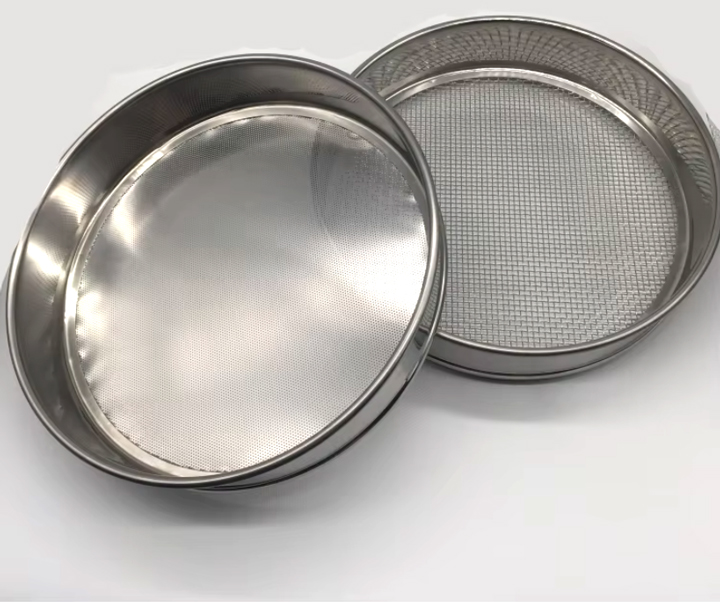
The common parameters of Test sieve are as follows: frame diameter 200 mm, sieve can be set 1-8 layers, sieve size range 0.025-3 mm, amplitude 1-4 mm, vibration frequency 1440 rpm, using 220V 50 Hz 0.12 kW power supply, weight 36 kg, timing up to 999 seconds, noise less than 50 decibels.
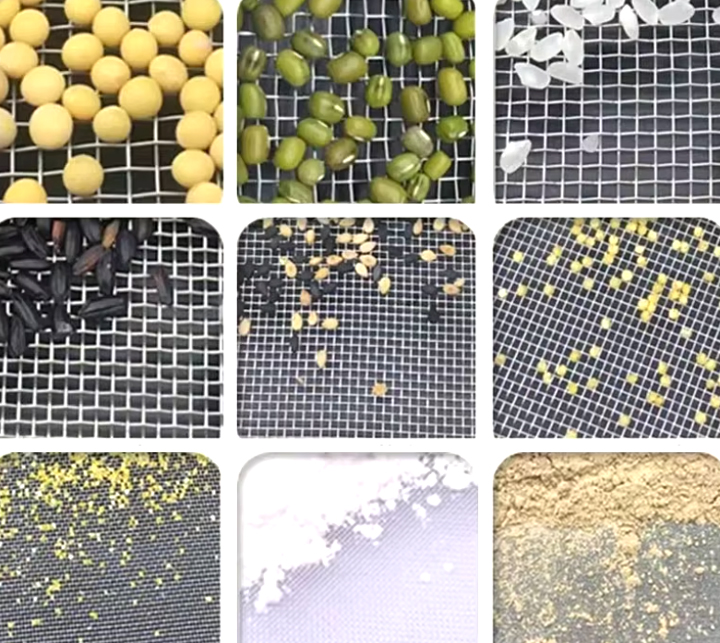
Test sieve can be used for sieving analysis of almost all granular or powder materials, and can meet different particle size detection requirements from coarse sieving to fine sieving. Commonly applicable materials include:
Metal powder: such as copper powder, aluminum powder, iron powder, stainless steel powder, nickel powder, titanium powder, zinc powder, alloy powder, etc.
Chemical materials: such as calcium carbonate, activated carbon, pigments, plastic particles, resin powder, silica gel particles, catalyst powder, etc.
Pharmaceutical raw materials: such as fine powder of traditional Chinese medicine, granular preparations, pharmaceutical mixtures, lactose powder, pharmaceutical excipients, vitamin powder, micro-pellet particles, etc.
Food particles: such as coffee powder, starch, powdered sugar, milk powder, seasoning particles, protein powder, cocoa powder, etc.
Minerals and building materials: such as quartz sand, cement, ceramic powder, talcum powder, kaolin, heavy calcium powder, gypsum powder, etc.
Agricultural powder: such as fertilizers, feed particles, soil samples, pesticide wettable powders, microbial agents, etc.
Test sieve prices range from $30 to $500. Choosing the right type and parameters can not only improve screening efficiency but also ensure data accuracy. Test sieve common aperture range covers 5μm to 4.75mm (according to ISO 3310-1 standard), corresponding to mesh sizes from 4 to 2500, and is a key tool for particle size analysis, quality control and sample testing. Its diverse materials, sizes and sieve structures are suitable for the application of different materials such as metal powders, chemical materials, pharmaceutical raw materials, food particles, agricultural powders, etc. With its high precision, standardization and versatility.
Address:China,Yanjin county forest park gate to the west 1000 meters north road.